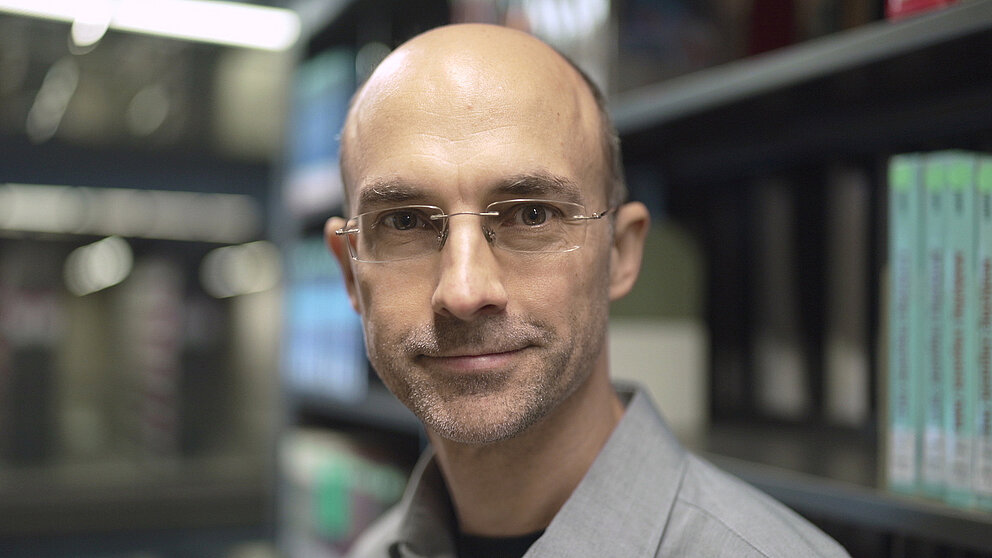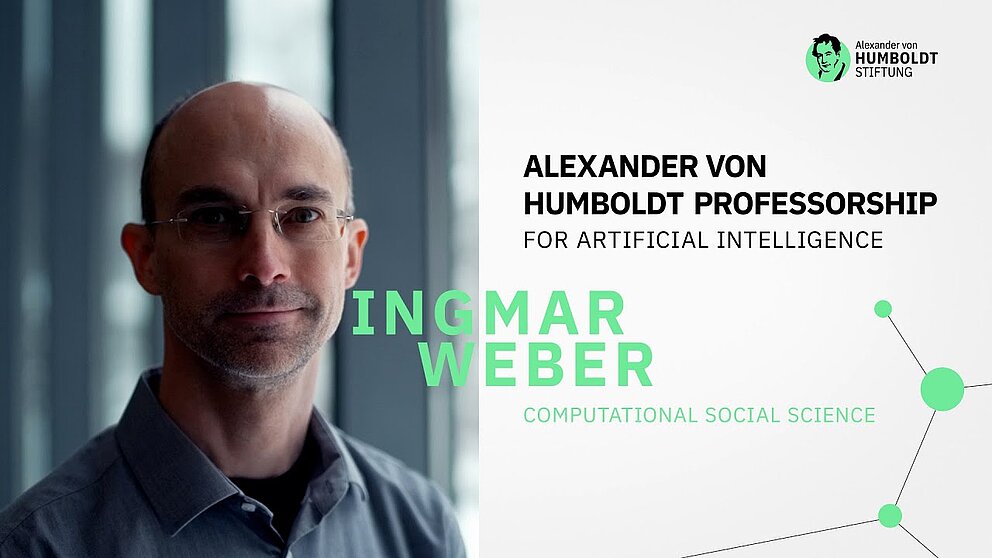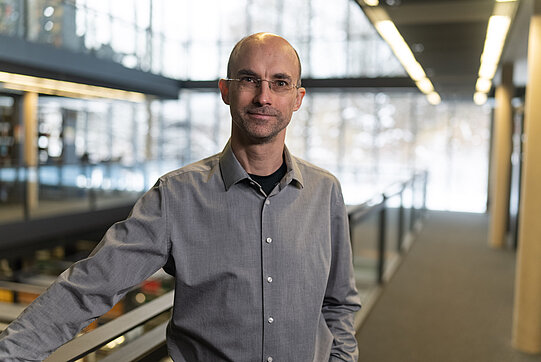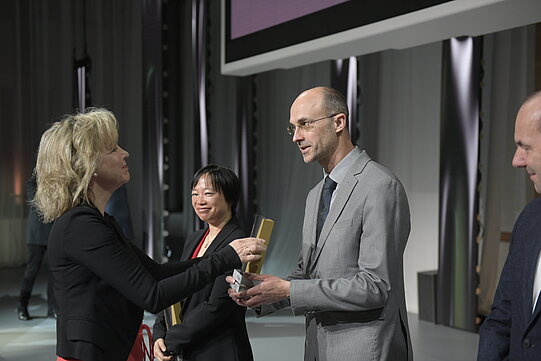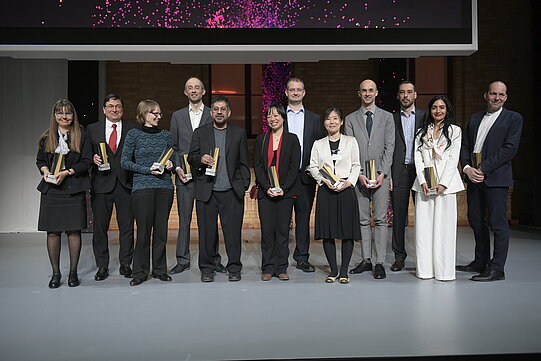Jump to the content
- {{#headlines}}
- {{title}} {{/headlines}}

Contact
Press, Communications and Marketing
Tel.: +49 228 833-144
Fax: +49 228 833-441
presse[at]avh.de
Computational Social Science
Platforms such as Facebook, Twitter or LinkedIn offer a large pool of data, some of which is publicly accessible via advertiser interfaces, for example. Ingmar Weber uses these interfaces and thus combines data from various social networks, from Yahoo or Google Trends, as well as from traditional sources like official statistics. In order to create models from which reliable statements can be derived, he specifically searches for weaknesses in the various data sources, such as uncertainties or errors in the samples. He then incorporates them into statistical tools like Bayesian models that are particularly suitable for achieving plausible results despite inaccuracies in the data.
With his "Big Social Data" evaluations, Ingmar Weber has produced groundbreaking work, amongst other things on migration, which can be employed to quantify migration movements that have already taken place and to predict future immigration and emigration. His results are considered more reliable than the often incomplete and sometimes contradictory official statistics. Ingmar Weber has received great recognition for the methods he has developed to investigate hate speech and political polarisation, especially in the United States – a topic that has occupied him since 2012. His algorithms can make the important distinction between statements that are merely provocative and dangerous hate speech. They thus facilitate more detailed analysis of a phenomenon that research often finds difficult to pin down.
Weber focuses on "AI for Social Good" and is a pioneer in this research field. He has furnished the social sciences with crucial new methods for utilising new data sources.
At Saarland University in Saarbrücken, Ingmar Weber will head the establishment of an Interdisciplinary Institute of Societal Computing. He will act as a bridgehead between disciplines and, amongst other things, advance data-driven AI research on social issues.
Brief bio
Ingmar Weber received his doctorate from Saarland University in Saarbrücken in 2007. He was a postdoc at EPFL (École polytechnique fédérale de Lausanne) in Switzerland and at Yahoo Research in Barcelona, Spain, before moving to the Qatar Computing Research Institute in 2012; since 2017, he has been Research Director of the Social Computing Group. The German mathematician was also a visiting researcher at Microsoft (2016) and at Singapore Management University, Singapore (2015). Weber is a Distinguished Member of the Association for Computing Machinery (ACM).

